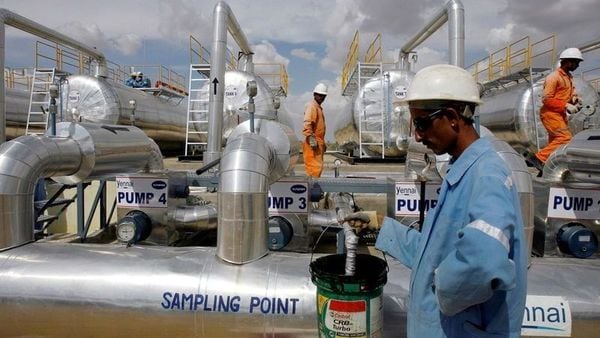Oil eases on Iran concern after hitting a two-year high above $72
- US crude touches $70 for the first time since October 2018.


Oil eased after hitting a two-year high above $72 a barrel on Monday, pressured by the prospect of higher Iranian exports through recovering demand and OPEC+ supply curbs provided underlying support.
Demand is rising in the United States and Europe as COVID-19 restrictions are loosened and, in another hopeful step for fuel use, India is easing its lockdown.
OPEC and its allies are sticking to agreed supply restraints through July.
Also check these Vehicles
Brent crude fell 62 cents, or 0.9%, to $71.27 by 0920 GMT, after earlier hitting $72.27, the highest since May 2019. US West Texas Intermediate touched $70 for the first time since October 2018 but reversed course to trade down 55 cents or 0.8%, at $69.07.
"With some improvement in the pandemic situation in India and the recovery in the US, China and Europe remaining on track, oil should remain a buy on dips," said Jeffrey Halley, an analyst at brokerage OANDA.
Crude has risen for the past two weeks, and Brent is up by over 37% this year, helped by supply curbs by the Organization of the Petroleum Exporting Countries and allies and demand recovering in part from the pandemic-induced collapse.
"The tailwind that oil prices are currently finding from virtually all sides remains strong," said Eugen Weinberg of Commerzbank, calling Monday's price correction "hardly surprising" after recent gains.
Investors may have sold off some contracts when WTI hit $70, said Avtar Sandu, a senior commodities manager at Phillips Futures in Singapore. The chance of more Iranian supply, and a drop in China's crude imports, also weighed.
"The primary concern is about Iranian barrels coming back into the market but I don't think there will be a deal before the Iranian presidential election," he said. The election is on June 18.
Iran and global powers will enter the fifth round of talks on June 10 in Vienna that could include Washington lifting economic sanctions on Iranian oil exports.








 9.7 kWh
9.7 kWh 200 Km
200 Km
 349.34 cc
349.34 cc 36.2 kmpl
36.2 kmpl


















